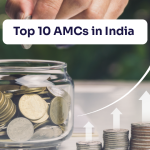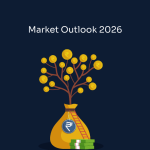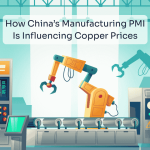When investors are loaded with cash
All logic often goes into the trash
A sudden jolt turns into a crash
Pounded investors fail to encash
The theory of decoupling makes its rounds every so often, especially when bulls are in charge. It argues global equity markets aren’t as closely tied with one another as they were in the past. Proponents of the decoupling theory are arguing these days that emerging markets may continue to do well (despite their recent correction) as the global economy recovers, irrespective of how (badly) the developed markets fare.
Well, take all these claims with a pinch of salt. It could be right in some isolated cases but the health of the US market decides the fitness level of global markets.
Even after considering the recent sell-off, the US markets are on a high, thanks to liquidity shots injected by the Federal Reserve (Fed). Risk appetite of investors has gone through the roof and still remains strong.
S&P 500 is one of the most widely tracked indices of the world. If you run a check on its present valuation vis-à-vis historical averages, its expensive by any comparison; the 20-year average P/E is 26 and 90-year average is 17.
Based on Trailing Twelve Month (TTM) basis
(Data source: macrotrends)
Yes, pandemic impacted earnings on a Trailing Twelve Month (TTM) basis but the valuation isn’t cheap even on 1-year forward estimates. Technology accounts for nearly 28% of S&P 500 and has witnessed ferocious rallies, especially in the last 8-10 months. The moot question is how long the current valuations can sustain and whether the world’s largest capital market is prepared for disappointments?
P/E band considers Bloomberg’s consensus earnings estimates
(Source: Ventura Research)
Special Purpose Acquisition Companies (SPACs)—also known as blank cheque companies—have been on a rampage in the US. In 2020, these blank cheque companies garnered over USD 80 billion. Typically, a SPAC gets listed with the sole objective of amalgamating with a privately owned company thereby taking it public indirectly. In this process, the private company takes over SPAC’s “listed status”, bypassing the conventional route of IPOs—no road shows and no sales pitch required anymore.
This isn’t a new phenomenon but previously was used only when companies couldn’t raise money through IPOs.
Taking a company public through this ‘indirect’ route saves a lot of time and allows the management to concentrate on business ONLY—advocators of SPACs claim. No denying. However, the deals between SPACs and the target company may potentially short-circuit many conventional IPO regulations that are in place to safeguard investors.
And doesn’t that display a ballroom dance of greed and fear—greed of losing a chance to make money on listing and fear of losing the fund raising opportunity in future?
In early January, the total market cap of all crypto currencies put together crossed an important psychological mark of USD 1 trillion. Since then, cryptos have corrected a bit but the demand trend still seems to be strong as depicted by the price of Bitcoin, which surged about USD 30,000 for the first time early this year and has been revolving thereabouts since then. Bitcoin accounts for nearly 60% of the total market cap of all crypto currencies.
Is the Bitcoin rally a precursor of a bumpy ride? (Data source: Coinmarketcap)
(Data source: Coinmarketcap)
All factors above denote that investors have a very high risk appetite for now. And investing in most asset classes has become a game of taking a banana boat ride on a stormy sea without wearing protective gear.
Will super-rich valuations in the US nudge investors to flood emerging markets with liquidity? That trade might already be underway. After all, Foreign Portfolio Investors (FPIs) have brought in ~ Rs 1.65 lakh crore in the last 4 months. Valuations in India too aren’t cheap, though many believe they are still not in a bubble zone.
P/E band considers Bloomberg’s consensus earnings estimates
(Source: Ventura Research)
But seldom do fresh bull markets start with such high valuations. Excess liquidity, excess optimism, excess complacency may produce undesired results.
So, should you sell a majority of your equity holdings? No, that would be another extreme and avoiding excesses means avoiding extremes. The answer lies in striking the golden mean.
You may also like to read: Are you reading the Q3FY21 report card of IT companies the right way?
Disclaimer:
We, Ventura Securities Ltd, (SEBI Registration Number INH000001634) its Analysts & Associates with regard to blog article hereby solemnly declare & disclose that:
We do not have any financial interest of any nature in the company. We do not individually or collectively hold 1% or more of the securities of the company. We do not have any other material conflict of interest in the company. We do not act as a market maker in securities of the company. We do not have any directorships or other material relationships with the company. We do not have any personal interests in the securities of the company. We do not have any past significant relationships with the company such as Investment Banking or other advisory assignments or intermediary relationships. We are not responsible for the risk associated with the investment/disinvestment decision made on the basis of this blog article.

Top 10 AMCs in India
4 min Read Jan 6, 2026
Market outlook 2026: Essential Do’s and Don’ts for Successful Investing
4 min Read Jan 2, 2026
China Manufacturing PMI at 50.1 Signals Stabilisation, Copper Prices Rally
4 min Read Dec 31, 2025
F&O Lot Size Changes in India: What Traders Need to Know (Effective Jan 2026)
4 min Read Dec 31, 2025
Revisiting the Gold-Silver Ratio Amid Silver's Outperformance
4 min Read Dec 22, 2025
Post your comment
You must be logged in to post a comment.